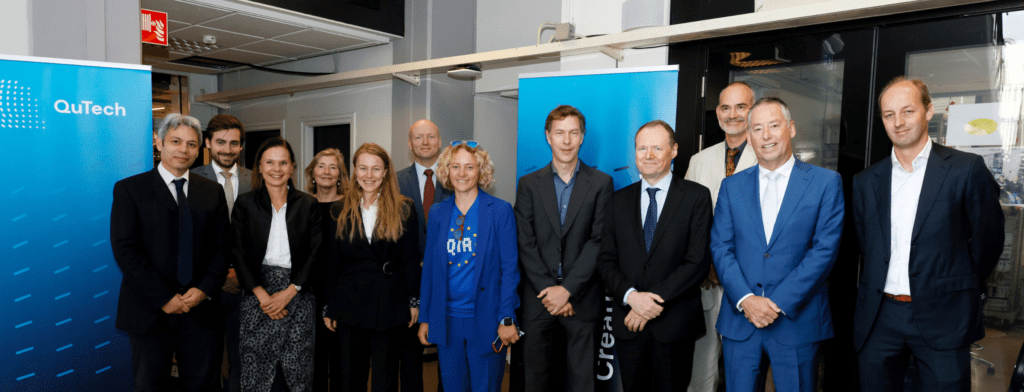28.09.2023Stories
Fostering Collaboration and Knowledge-Sharing: A 2023 QIA Internship Initiative Update
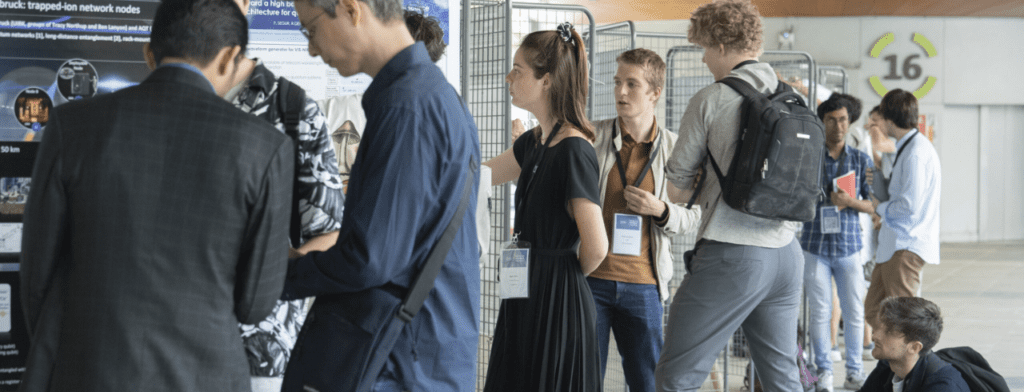
QIA partners to host three interns from Poland and Slovenia
Internship opportunities were recently awarded to three young learners from Slovenia and Poland under Quantum Internet Alliance (QIA)’s Building One Europe initiative. They will be joining the team of QIA Metropolitan Team Lead Tracy Northup at the University of Innsbruck and QIA Director Stephanie Wehner at Delft University of Technology.
Targeting students and young professionals from countries currently not involved in QIA, this initiative aims to encourage cross-institutional knowledge sharing and help in building a quantum internet-ready workforce across all EU27 Member States.
Meet the Interns
Žiga Pušavec | Researcher at University of Ljubljana in Slovenia
Žiga works as a researcher in the Laboratory for Quantum Optics and Foundations of Quantum Physics at University of Ljubljana, where he is involved in the development of components for the future quantum networks, namely narrowband sources of entanglement.
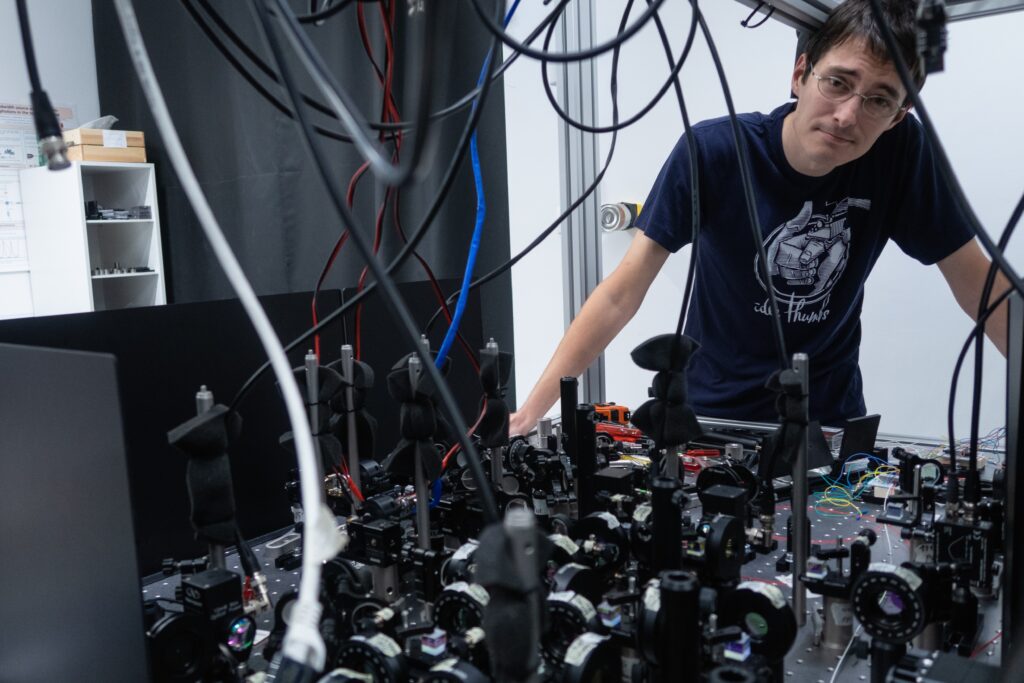
This photo was taken at the University of Ljubljana by Marko Serafimović.
“The main reason I find the internship opportunity at the University of Innsbruck interesting is that it is very related to my specific area of work and also, more broadly, to what we want to do in our group over the next few years,” Žiga noted to be his motivation in applying for the program.
He mentioned that his group is involved in setting up the Slovenian branch of QKD network as part of the EuroQCI initiative, and they are also designing narrow-band single photon conversion systems that would allow for an interface between entangled telecom photons with quantum memory.
“The internship covers a lot of topics we will need to implement also in our experiments, but have not done yet. I will try to learn as much as possible and see the context, what their group at Innsbruck is doing. With the knowledge I will get [during the internship], hopefully this can set a better foundation for what we are doing [at the University of Ljubljana],” he concluded.
Žiga is starting the internship at the University of Innsbruck in October. He will be working with the Quantum Interfaces Group led by Tracy Northup up to February 2024.
Hubert Kołcz | Master Student at Warsaw University of Technology in Poland
Hubert is an experienced software engineer from Poland who has worked in over 20 commercial projects. He is currently finishing his master’s degree in Computer Science at Warsaw University of Technology.
“I became fascinated with quantum computing several years ago, after leading a student startup of an application to provide anonymity to people with social phobia. My career in this field advanced this year when I was invited by Intel Labs to contribute to a project where I was responsible for creating the proof of concept of a database that implements basic logic to handle quantum computer data,” he shared on his first day of his internship at Delft University of Technology’s Quantum Computer Science Group led by Stephanie Wehner.
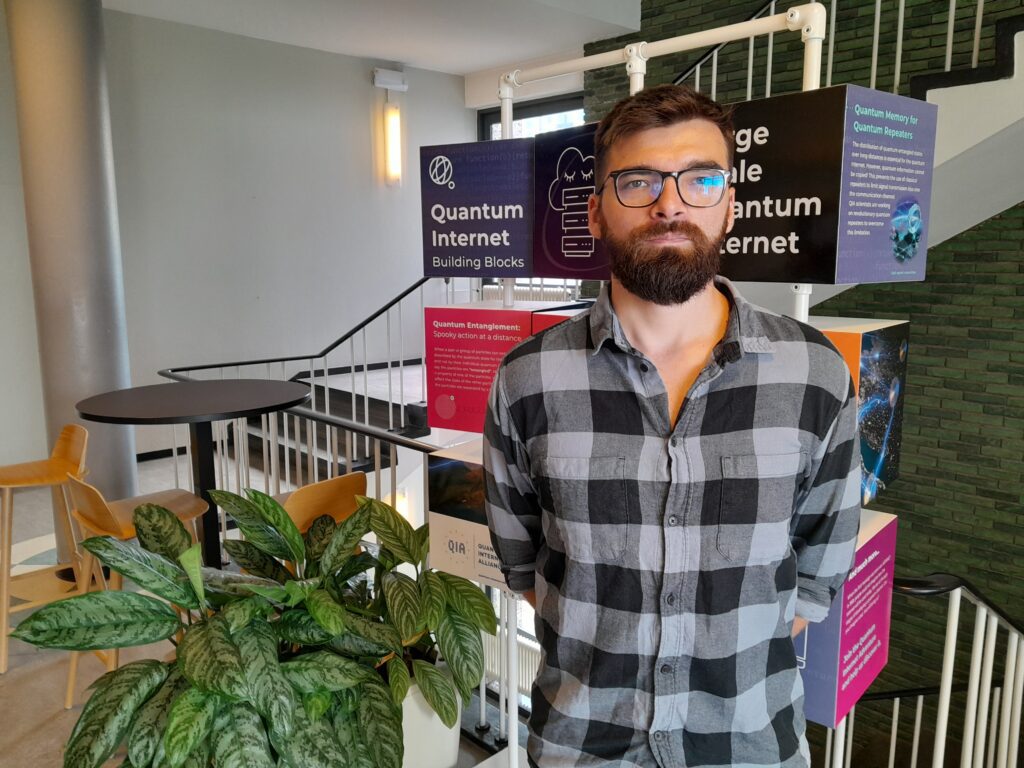
This photo was taken at Delft University of Technology.
Hubert added that he envisioned the internship to be a good opportunity to pursue this interest and turn into a stepping stone towards a career in quantum.
“Development of advanced, quantum security technologies in Poland is emerging, but possibilities to gain relevant experience are very limited. I see the internship as an opportunity as well for me to advance my knowledge in this field and to share it with my university,” he said.
Hubert expressed his interest to contribute in strengthening cooperation between QIA and Warsaw University of Technology, specifically in research on quantum cryptography application.
His internship programme at Delft University of Technology started in September and will end in December 2023.
Viktorija Stevanoska | Master Student at University of Maribor in Slovenia
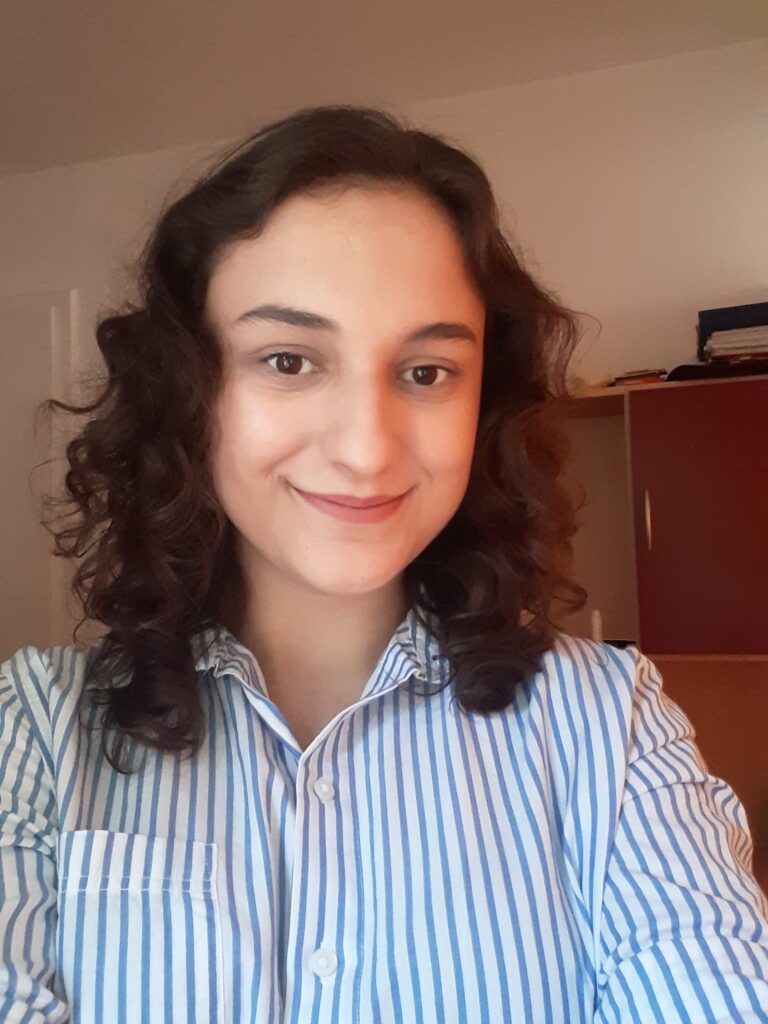
Viktorija is in her final year of her Master of Computer Science and Information Technologies program at the University of Maribor, where she also obtained her bachelors degree and worked on a thesis analysing selected quantum algorithms.
“I’ve always aspired to help further research in the field of quantum physics, and I believe that this internship will give me the knowledge and experience towards reaching that goal,” she noted.
Viktorija shared that she is both excited and curious at what awaits her at Quantum Interfaces Group at the University of Innsbruck when she starts her internship in February. She said her expertise is in programming and the likes, and working in the laboratory would be an exciting new experience for her.
“More importantly, I am looking forward to expanding my knowledge of quantum networks and quantum physics,” Viktorija said.
She added that she is considering to pursue a career in quantum and this internship will provide a good initial look into the field.
Viktorija’s internship at the University of Innsbruck will start in February 2024 and will last for three months.
Insights from the Advisors
University of Ljubljana associate professor and Žiga’s advisor Rainer Kaltenbaek said the internship program may not only benefit Žiga but also the rest of his group.
“In my lab, Žiga has been working on the design and the implementation of MHz-linewidth sources of entanglement. These sources could provide very powerful tools for the implementation of future quantum repeaters or quantum sensors because they will allow more efficient coupling to narrowband quantum memories.
“Tracy’s group [at the University of Innsbruck] has experience with multiple potential platforms that could be used as quantum memories – optomechanical systems as well as trapped ions. My hope was for Žiga to gain experience in working with such systems so that, in the future, we will be able to efficiently integrate such platforms with narrowband sources of entanglement,” Rainer explained.
He added that there is potential to collaborate on topics of quantum optomechanics as well as on the integration with sources of entanglement, for instance, towards creating a network of quantum sensors in the future.
Tracy, who leads the Quantum Interfaces Group at the University of Innsbruck and the Metropolitan Team at QIA, shared that Žiga will help her group to set up quantum frequency conversion to link together our two trapped-ion nodes in the telecom frequency band. Viktorija, on the other hand, will help to improve their laboratory-control software so that the process of remote-ion entanglement is more efficient.
“Both internship opportunities build on their prior experience—in Žiga’s case, in experimental quantum key distribution, and in Viktorija’s case, in computer programming—and will give them new experience with a range of aspects of experimental quantum networking, from software to electronics to optics to atomic physics,” she further noted.
“Our aim is to integrate them thoroughly in the day-to-day work of our QIA team,” Tracy concluded.
About the QIA Internship Initiative
This annual initiative offers to fund up to five (5) students and young professionals in countries currently not involved in QIA. Through funding, mentorship, and structured programs, we are not only providing opportunities but also investing in a stronger and more interconnected Europe, where talents from all EU27 Member States can thrive.
QIA funds up to 5,000EUR per intern to cover for travel and accommodation expenses. This year’s call was open from March to May, with six (6) QIA partners opening their doors to interested applicants from eligible countries*.
The 2024 call will be announced early next year.
*List of eligible countries: Belgium, Bulgaria, Croatia, Cyprus, Czechia, Estonia, Finland, Greece, Hungary, Ireland, Latvia, Lithuania, Malta, Poland, Romania, Slovakia, Slovenia, Sweden

